Crear la Aplicación Servidor:
Crear un nuevo proyecto
File, New, Other, WebServices, SOAP Server Application
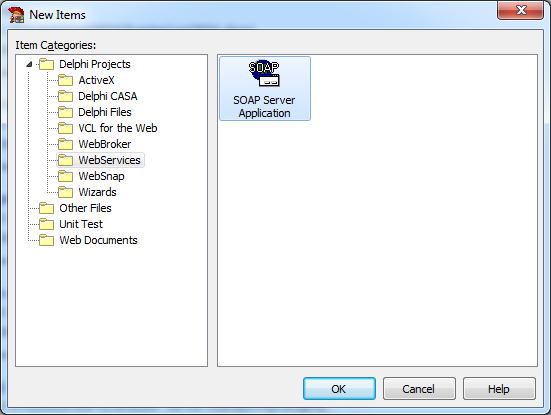
En este caso práctico se ha decidido usar ISAPI/NSAPI Dynamic Link Library
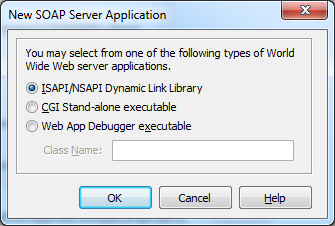
Aceptamos crear la interfase del módulo SOAP
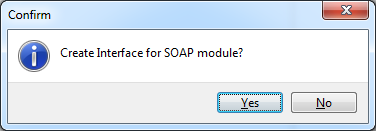
Agregamos un nuevo WebService y le asignamos un nombre en este ejemplo utilicé wsDemo y asignamos la generación de código que tiene por omisión.
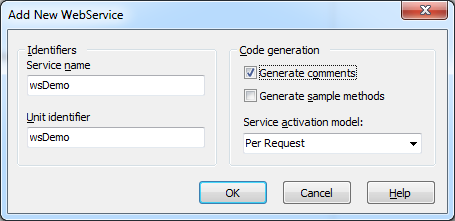
Delphi nos creará las unidades correspondientes, veamos como se generó la interfase invocable de nuestro proyecto wsDemoIntf.pas
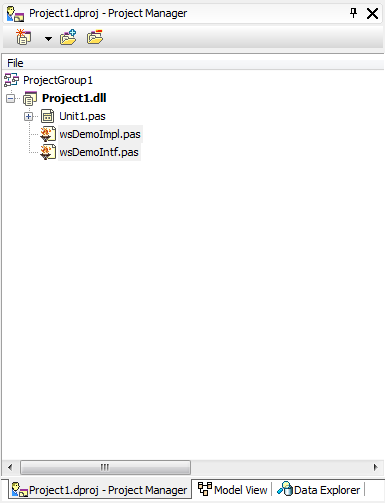
El siguiente paso es darle forma a las funciones que deseamos utilizar, usaremos operaciones aritméticas básicas (suma, resta, multiplicación y division) y se deben incluir dentro del cuerpo de nuestra interfáz.
Dichas funciones cuentan con dos parámetros de entrada A y B y un retorno, todos de tipo "double".
También se ha creado una unidad wsDemoImpl.pas para la implementación de la clase que será invocada, en la cual copiaremos las funciones creadas en la unidad wsDemoIntf.pas
Ahora, solo nos resta escribir el código de las funciones suma, resta, multiplicación y división.
Nota: Si alguien se pregunta, que pasará con las excepciones generadas por el divisior cero, es parte del ejercicio, no es un bug ![]()
Fin Parte I
















